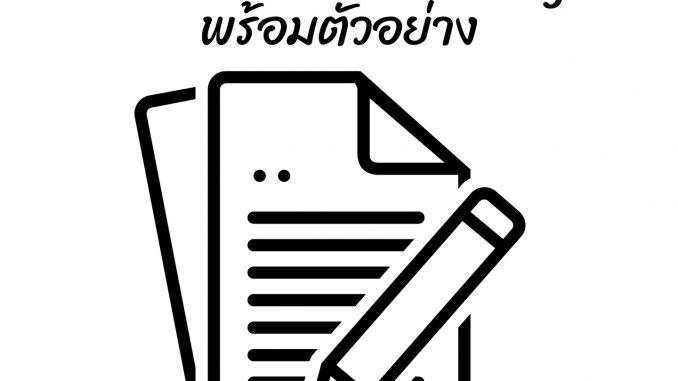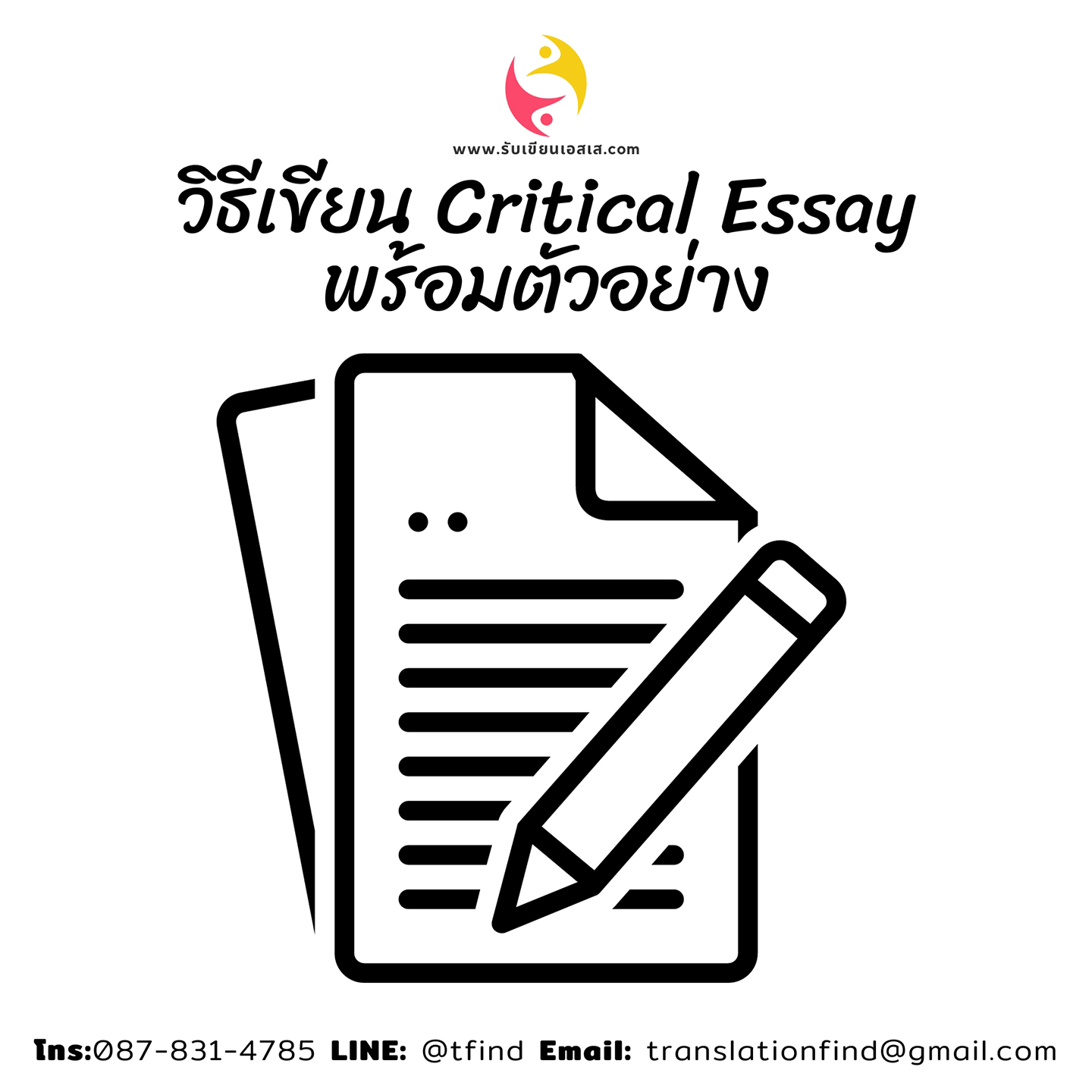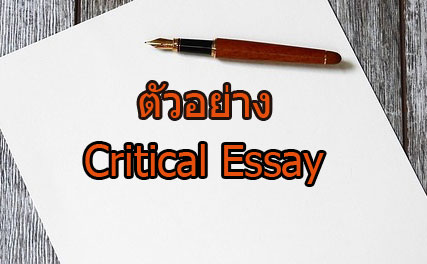
วิธีการเขียน Critical Essay
Purpose: To make a critical analysis of a particular situation, piece of work or idea.
Introduction: Introduce the topic and present a thesis statement.
Body: Give support to the thesis using evidence, well-researched and referenced.
Conclusion: Summarize why the thesis is correct and give an ending thought for the reader to consider.
Language: Must be accurate, say what you can prove rather than what you think.
Other considerations: Critical does not always mean negative. Can be positive, or can give both sides of the argument.
>>> สั่งงานเขียนกับ Native Writer งานคุณภาพ แกรมม่าเป๊ะ คลิก! >>>
ตัวอย่างการเขียน Critical Essay ภาษาอังกฤษ
Kosovo 1999: The NATO Intervention against Yugoslavia
By March 1999, the Albanian insurgency against the Serbs in the Yugoslav province of Kosovo was gathering strength (Cook, 2002). The majority Albanian population wanted autonomy from Belgrade, and a separatist army was attacking Serbian police and civilians as it tried to gain control of the territory (ibid.). The Yugoslav government of Slobodan Milosevic responded by sending the army to deal with the separatists, who had been listed as a terrorist group by the United States (UN, 1998). However, an incident now known as the Racak massacre brought the conflict to wider attention, and NATO threatened airstrikes if peace could not be reached (Cook, 2002; Curlin and Pavelic, 2005). On March 23, 1999, the NATO airstrikes began – a tactic which should not have been employed for three reasons: legal, moral and tactical.
The legal objections are the most easily defined. The United Nations Charter does not permit military intervention in the internal affairs of sovereign states, except when the UN Security Council passes a resolution to the contrary (UN Charter, 1997). China, Russia and Namibia vetoed the airstrikes, so the intervention had no legal grounds (UN, 1999). NATO went ahead regardless, claiming that while the intervention may not be legal, it was still legitimate because of the humanitarian objectives involved (Cook, 2002; Hedges, 2003). Given the humanitarian refugee crisis which arose as a direct consequence of the intervention (Curlin and Pavelic, 2005), it might be argued that the illegal actions of NATO had not legitimacy at all.
The moral case against the intervention can be based on the notion that it is not acceptable for NATO to support a terrorist organization (UN, 1998) seeking to gain autonomy from a national sovereign government. Violation of this principle sets a dangerous precedent. The situation in Kosovo was especially complicated by the fact that the Albanian population was augmented by illegal immigrants from neighbouring Albania itself (UNHCR, 1999). Albania strongly supported NATO’s intervention since NATO’s objectives were closely aligned with those of Kosovo’s Albanians (Cook, 2002). The second moral shortcoming lies in the fact that the airstrikes began when the Rambouillet peace talks broke down, with Milosevic refusing to grant NATO troops access to Yugoslav territory (Curlin and Pavelic, 2005). It appeared that when a demand to breach Yugoslavia’s sovereign rights was refused, the outcome was military intervention.
The legal and moral arguments are significant, but the most serious failing of the intervention was the fact that it achieved the exact opposite of what it set out to do. The stated aim was to remove Serbian troops from Kosovo, prevent genocide, bring security to the Albanian population and grant autonomy from Belgrade (Hedges, 2003; Rakiticet al., 2009). Milosevic made it abundantly clear on Serbian TV that if airstrikes were launched, Serbian troops would seek to remove the Albanian population from Kosovo (RTS, 1999). NATO duly proceeded with its military assault – to protect the Albanians – and Milosevic acted as promised in trying to drive out the Albanians. Over 800,000 were forced to leave in the following days (UNHCR, 1999). Several were killed by the airstrikes designed to protect them. What was expected in Brussels to be a short and highly effective intervention became a long a complicated one, with the bombardment continuing until June 11, 1999 (Cook, 2002).
It can therefore be argued that had negations continued at Rambouillet, with the clauses clearly unacceptable to Yugoslavia adjusted, a settlement similar to the one reached three months later (ibid.) might well have been agreed. Had NATO not intervened, the refugee exodus would not have been precipitated, and many lives might have been saved; the casualty rate prior to NATO’s involvement was far lower (UN, 1999). NATO has now found itself with the difficult role of protecting the Serb minority in Kosovo and policing the province, which has since declared independence but remains under UN protection. The remaining Serb population has dwindled severely at the hands of Albanian attacks, with over 200,000 Serbian refugees fleeing to Serbia proper (UNHCR, 2001). For these reasons it can be confidently stated that the NATO military intervention was ill-advised and counter-productive. It is to be hoped that the lessons will have been learned should similar situations arise in other parts of the world in the future.
(Disclaimer: The citations in this essay are for example purposes only and do not necessarily refer to genuine information sources. The arguments presented here are based on the Kosovo War of 1999 but have not been researched accurately and therefore should not be trusted.)
หากต้องการ (Resume ดีๆติดต่อที่นี่ได้เลย idtecresume.com )
>>> สั่งงานเขียนกับ Native Writer งานคุณภาพ แกรมม่าเป๊ะ คลิก! >>>


